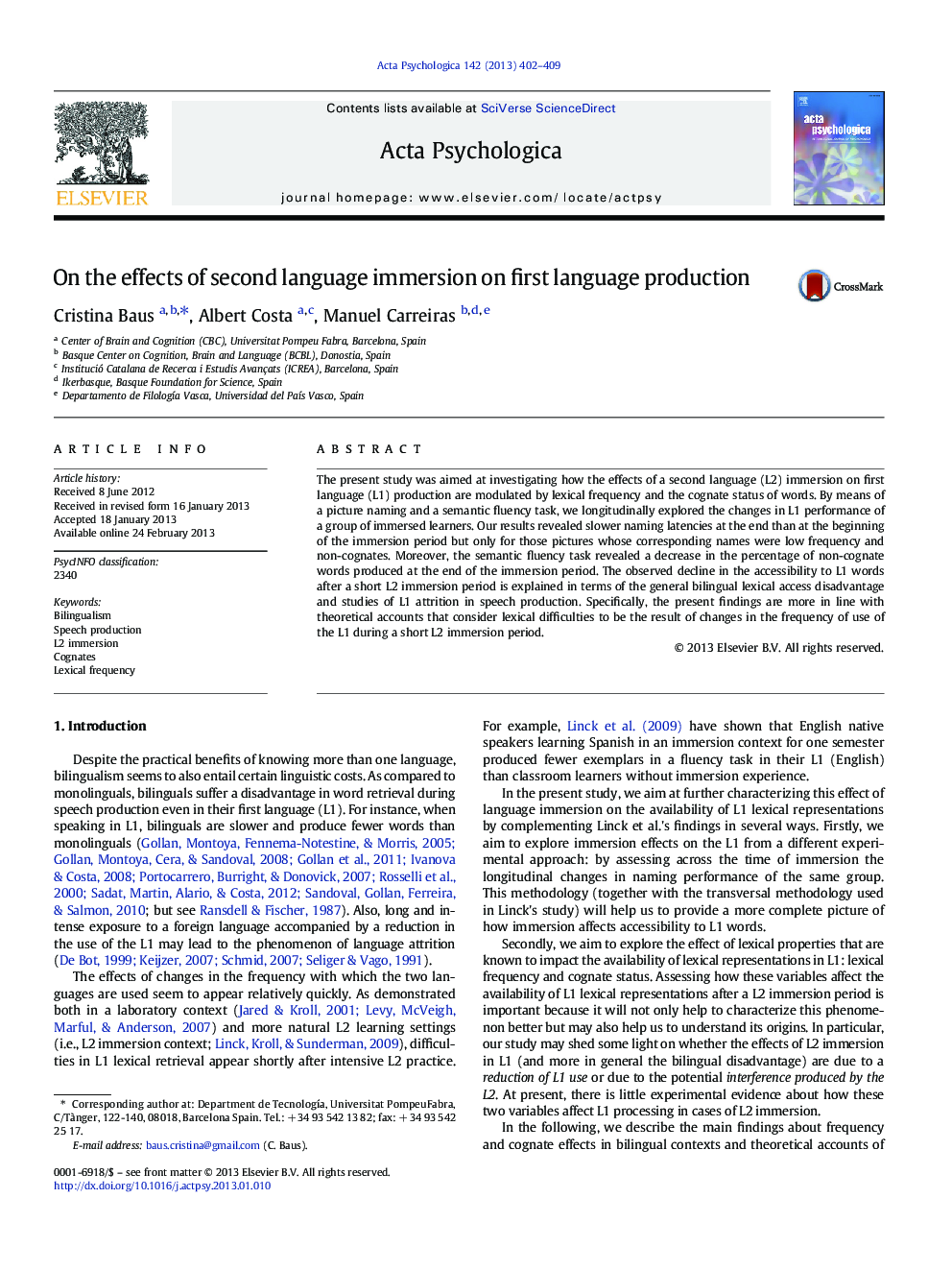| Article ID | Journal | Published Year | Pages | File Type |
|---|---|---|---|---|
| 919824 | Acta Psychologica | 2013 | 8 Pages |
The present study was aimed at investigating how the effects of a second language (L2) immersion on first language (L1) production are modulated by lexical frequency and the cognate status of words. By means of a picture naming and a semantic fluency task, we longitudinally explored the changes in L1 performance of a group of immersed learners. Our results revealed slower naming latencies at the end than at the beginning of the immersion period but only for those pictures whose corresponding names were low frequency and non-cognates. Moreover, the semantic fluency task revealed a decrease in the percentage of non-cognate words produced at the end of the immersion period. The observed decline in the accessibility to L1 words after a short L2 immersion period is explained in terms of the general bilingual lexical access disadvantage and studies of L1 attrition in speech production. Specifically, the present findings are more in line with theoretical accounts that consider lexical difficulties to be the result of changes in the frequency of use of the L1 during a short L2 immersion period.
► We characterized the effects of a short L2 immersion on L1 production. ► Lexical frequency and cognate status were taken as indexes of lexical processing. ► L1 accessibility after immersion reduced especially for non-cognate words.
